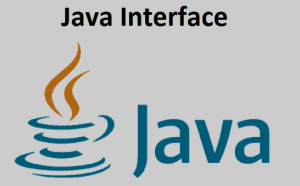Java Interfaces
An interface in Java is a blueprint of a class. It can have only constants, method signatures, default methods, static methods, and nested types. Interfaces cannot be instantiated but they can be implemented by classes or extended by other interfaces.

What is an Java Interfaces ?
In Java, an interface is a reference type, similar to a class, that can contain only constants, method signatures, default methods, static methods, and nested types. They cannot be instantiated but can be implemented by classes or extended by other interfaces.
Example :
interface MyInterface {
void method1();
void method2();
}
Why use Java Interfaces ?
Interfaces are used to achieve abstraction and multiple inheritance in Java. They allow you to specify what a class must do, but not how it does it. They’re also used to achieve loose coupling.
Implementing an Interface
A class implements an interface by using the implements keyword. All methods in the interface must be implemented in the class.
Example :
class MyClass implements MyInterface {
public void method1() {
// Method implementation
}
public void method2() {
// Method implementation
}
}
Multiple Inheritance
Java does not support multiple inheritance with classes. However, multiple inheritance is supported with interfaces. A class can implement multiple interfaces.
Example :
interface FirstInterface {
void method1();
}
interface SecondInterface {
void method2();
}
class MyClass implements FirstInterface, SecondInterface {
public void method1() {
// Method implementation
}
public void method2() {
// Method implementation
}
}
Default Methods
From Java 8, interfaces can have default methods. These are methods with a default implementation. This allows you to add new methods to an interface without breaking existing implementations.
Example:
interface MyInterface {
default void defaultMethod() {
System.out.println(“This is a default method”);
}
}
Conclusion
Interfaces in Java are a fundamental concept that every Java programmer should understand. They provide a way to ensure that certain methods are implemented in classes, allow for multiple inheritance, and enable you to work with default and static methods.